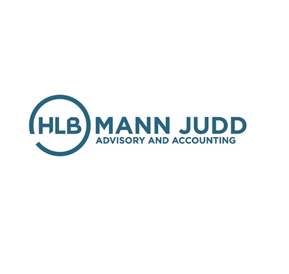A quick guide to carbon accounting by HLB Mann Judd – QHA Partners
Carbon accounting is a quickly evolving area and over the next few years it will affect businesses of all sizes. The purpose of this document is to address some of the frequently asked questions (FAQs) for any business taking their first steps towards carbon emissions measurement and reporting.
What is carbon accounting?
Carbon accounting is the measurement of an organisation’s greenhouse gas (GHG) emissions within a set of boundaries. Emissions come from activities such as using fuel and electricity, purchasing goods and services, generating waste, and employees travelling and commuting.
What is the GHG Protocol?
The GHG Protocol is a globally recognised standard that provides a comprehensive framework for quantifying, measuring and reporting GHG emissions. The GHG Protocol defines three scopes of emissions which categorise emissions sources across an organisation’s value chain and form the basis for carbon accounting.
- Scope 1: Direct GHG emissions from sources owned or controlled by an organisation. For example, emissions from burning fuel in entity-owned vehicles or equipment.
- Scope 2: Indirect GHG emissions from the consumption of energy used to power operations (i.e., electricity, steam, heat and cooling). These emissions are considered indirect since an organisation does not directly control the emissions created by the generation of the energy.
- Scope 3: Other indirect GHG emissions, not included in Scope 2, that occur in the value chain of an organisation, including both upstream and downstream emissions.
Why should businesses start measuring emissions?
Governments and regulators around the globe are increasingly requiring businesses to disclose their carbon emissions. In Australia, such mandatory requirements commenced from 1 January 2025, starting with the largest entities and extending to progressively smaller large entities over the following few years.
Even where an organisation is not subject to these mandatory requirements, the reality is no business today operates in isolation. As more organisations begin reporting their emissions and setting reduction targets, they will look to suppliers in their value chain for their emissions data.
Consequently, regardless of a business’s reporting requirements and size within a supply chain, it may be asked to provide emissions data. Already, there are many entities that require their suppliers to measure their GHG emissions and / or set net zero targets in order to be eligible to do business with them.
Understanding your business’s carbon footprint allows for the identification of opportunities for reducing emissions and can form part of a long- term strategy for growing a sustainable business. It may also become necessary to continue dealing with certain customers and / or funding providers.
What are the benefits for businesses?
There are several benefits for businesses of all sizes to start quantifying their carbon emissions. Key stakeholders, including customers, suppliers and talent, are increasingly expecting organisations to understand and manage their climate impact.
Other key benefits include:
- Staying at the forefront of evolving regulatory requirements
- Prioritising actions required to reduce emissions, particularly as countries adopt net zero commitments
- Potential energy and cost savings by optimizing resource efficiency
- Satisfying emissions data requests from customers and other stakeholders
- Communicating your business’s sustainability story to stakeholders
Carbon accounting helps you stay ahead of the curve while allowing you to demonstrate your commitment to understanding and reducing emissions.
What data do I need to start?
Like financial accounting, carbon accounting requires comprehensive business data and a sound processing methodology.
Some of the business data required includes:
- Financial transactions for the reporting period
- Activity data for key sources of emissions
- Fuel usage • Electricity consumption
HLB Mann Judd is an Australasian advisory and accounting firm with offices located in major cities and regional business centres in Australia, New Zealand and Fiji. Our experienced team of specialists provide advice and services to a large and diversified client base that includes growing businesses, governments, not for profits and individuals. For any ESG and sustainability queries, please contact Chew Mar on (07) 3001 8884 / cmar@hlbqld.com.au or James Henderson on (07) 3001 8811 / jhenderson@hlbqld.com.au
This article was first published on www.hlb.com.au

